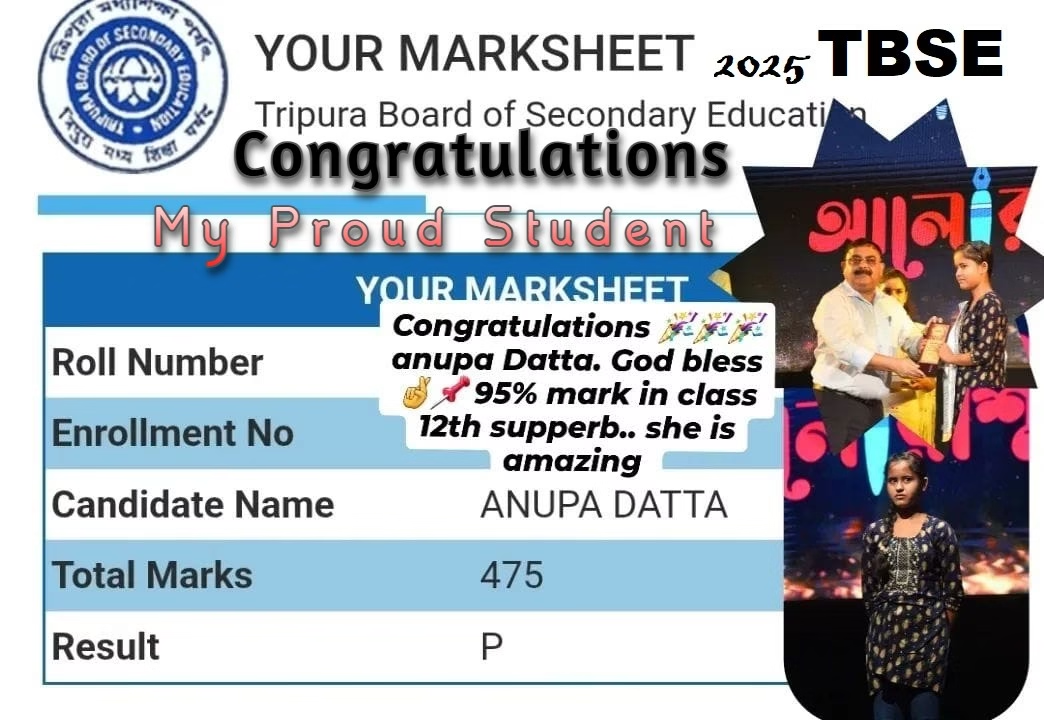🧠 Introductory Macroeconomics – Class 12

🧠 Introductory Macroeconomics – Class 12
🧠 Introductory Macroeconomics – Class 12
📘 Chapter 1: Introduction
✅ 100% Exam-Focused Solutions
🎓 By Grandmaster Sir Bikram Sutradhar
🏫 Institute: bAstronautWay
🌐 Official Website: www.SirBikramSutradhar.com
🔖 Main Headings with Explanations
🟢 1. Meaning of Economics
📘 CHAPTER-1: INTRODUCTION
❓Question 1: What is the difference between microeconomics and macroeconomics?
✅ Answer:
🔹 Microeconomics and Macroeconomics are two main branches of economics.
Let’s understand the difference in a simple way:
| Point | Microeconomics | Macroeconomics |
| 1. Meaning | Study of individual units in the economy. | Study of the entire economy. |
| 2. Deals with | Consumers, firms, prices of one product, etc. | National income, inflation, unemployment, etc. |
| 3. Objective | Understand how prices are set and how resources are used. | Understand how the economy grows and remains stable. |
| 4. Example | Price of sugar, demand for mobile phones. | Total output of a country, general price level. |
| 5. Usefulness | Helps businesses in decision-making. | Helps the government in making economic policies. |
👉 Micro = Small scale
👉 Macro = Large scale
❓Question 2: What are the important features of a capitalist economy?
✅ Answer:
A Capitalist Economy is also called a Free Market Economy, where private individuals own resources, and the main aim is profit.
🔑 Key Features:
- ✅ Private Property
- All resources like land, machines, factories are privately owned.
- Example: A person owns a shop or factory.
- ✅ Freedom of Enterprise
- People are free to choose any business or job.
- Example: You can start a café or a mobile shop freely.
- ✅ Price Mechanism
- Prices are decided by demand and supply, not by the government.
- ✅ Consumer Sovereignty
- “Consumer is king” – businesses produce what consumers want.
- ✅ Profit Motive
- Main goal of producers is to earn profit.
- ✅ No Government Interference
- Government does not control what or how much to produce.
- ✅ Self-interest
- Everyone works for their own benefit, which helps in growth.
📌 Example: Countries like USA and UK follow capitalist economy.

❓Question 3: Describe the four major sectors in an economy according to macroeconomics.
✅ Answer:
Macroeconomics divides the economy into 4 major sectors:
- 🏠 Household Sector
- People or families who consume goods and services.
- They earn income and spend on goods, services, and pay taxes.
- 🏭 Production Sector (Firms)
- Makes goods and services.
- Pays wages to households, taxes to the government, and imports goods.
- 🏛️ Government Sector
- Collects taxes and provides public goods (roads, defense, education).
- Also gives subsidies or support when needed.
- 🌍 External Sector
- Handles imports and exports.
- Example: India imports oil and exports textiles.

❓Question 4: Describe the Great Depression of 1929.
✅ Answer:
The Great Depression was a global economic crisis that started in 1929 in the USA and lasted through the 1930s.
🔻 Key Points:
- 📉 Started with: A big stock market crash in the USA in 1929.
- 📊 GDP Fall: The global economy fell by around 15%.
- 🧊 High Unemployment: Many people lost jobs.
- 🏭 Factories Closed: Due to low demand.
- 💰 Prices Dropped: Goods remained unsold.
- 😟 Poverty Increased: No income, no jobs.
🔄 Causes (Easy Explanation):
- Too much production, but people were not buying (low demand).
- This caused goods to remain unsold, so factories stopped producing.
- As production stopped, workers lost jobs, leading to low income.
- This again led to less demand, and the cycle continued.
🔁 Flowchart of the Crisis:
Overproduction → Low Demand → Unsold Goods → Low Prices → Low Profits →
Layoffs → Low Income → Less Demand → More Problems
-
📘 Becoming an Astronaut in India (ISRO) – A Complete Guide After Class 12
📘 Becoming an Astronaut in India (ISRO) – A Complete Guide After Class 12 ✍️…
-
Top 20 Shubh Tracks You MUST Watch on @SHUBHWORLDWIDE 🎧
Top 20 Shubh Tracks You MUST Watch on @SHUBHWORLDWIDE 🎧 📝 Top 20 Shubh Tracks…
-
🌟🎉 Anupa Datta Shines Again with 475 Marks in TBSE Class 12 Science 2025 – A True Inspiration! Tbse Board Result 2025 🎉🌟
📅 Published on: April 30, 2025📍 Agartala, Tripura In a world where challenges often dim…
-
🚀 bAstronautWay – Your Ultimate Learning Destination! 🎓✨
TBSE CBSE Undergraduate and Postgraduate Entrance Exams 📍 Our Locations: 9863002294 / 7005561197 📚 Courses…
-
🏆 Pratik Waikar: The Unstoppable Kho Kho World Cup Captain 2025
Discover the inspiring journey of Pratik Waikar, India’s Kho Kho sensation, as he rises to…
-
🏆Sandeep Arya: The Iron Will of Surya Namaskar
In the world of yoga endurance, one name stands with extraordinary strength and discipline —…
-
Rosan Kujur: Odisha’s Midfield Dynamo Rising for India 🇮🇳🏑
In the modern era of Indian hockey, where speed, tactical intelligence, and composure define greatness,…
🟢 2. Meaning of Microeconomics
📌 Microeconomics deals with individual parts of the economy such as:
- Individual consumers
- Firms
- Single market behavior
🧩 Examples:
- Price of one product (like sugar)
- Demand for mobile phones
- Supply of wheat by one farmer
🟢 3. Meaning of Macroeconomics
📌 Macroeconomics deals with the entire economy. It studies overall:
- National income
- Unemployment
- Inflation
- Economic growth
🌐 Examples:
- India’s total GDP
- Inflation in the whole country
- Unemployment rate in the nation
🟢 4. Difference Between Microeconomics and Macroeconomics
| Meaning | Study of individual units | Study of the economy as a whole |
| Focus | One consumer, firm, or product | National income, inflation, general employment |
| Objective | Price determination, resource allocation | Economic growth, price stability, employment |
| Example | Price of petrol, supply of mangoes | GDP of India, national unemployment rate |
| Usefulness | Helps in individual business decisions | Helps in forming government policies |
🟢 5. Features of a Capitalist Economy
📌 A Capitalist Economy is also known as a Free Market Economy, where:
- Most resources are privately owned
- There is minimum government interference
- The main aim is profit
🔑 Features (Point-wise):
- ✅ Private Property: Individuals own land, factories, machines.
- ✅ Freedom of Enterprise: Anyone can open a business.
- ✅ Price Mechanism: Prices are decided by demand and supply.
- ✅ Profit Motive: All producers aim to earn maximum profit.
- ✅ Consumer Sovereignty: “Consumer is king” – they decide what is produced.
- ✅ Minimal Government Role: Government rarely interferes in economic matters.
- ✅ Self-Interest Driven: Everyone works for personal gain, which benefits the economy.
📍 Example:
Countries like USA, Australia, and Japan follow capitalist systems.
🟢 6. Major Sectors of the Economy (Macroeconomic View)
📌 According to macroeconomics, the economy is divided into 4 major sectors:
- 🏠 Household Sector
- Consumers of goods and services
- Earn income, spend on goods, and pay taxes
- 🏭 Production Sector (Firms)
- Produces goods and services
- Pays wages, rents, and imports raw materials
- 🏛️ Government Sector
- Collects taxes
Written By
Full Stack Developer and 5-Time World Record Holder, Grandmaster Bikram Sutradhar
bAstronautWay : A Government-Approved Trademark Brand
SirBikramSutradhar on YouTube
SirBikramSutradhar is also a Government-Approved Trademark Brand.
Written By
Full Stack Developer and 5-Time World Record Holder, Grandmaster Bikram Sutradhar
bAstronautWay
SirBikramSutradhar on YouTube
More Story click the link
ICSE CLASS 10 ICSE CLASS 10 BIOLOGY BASTRONAUTWAY SirBikramSutradhar Bikram Sutradhar GrandMaster Bikram Sutradhar selina biology solutions ICSE Biology Selina Solution
📚 Class 9 Science – Complete Table of Contents (विषय-सूची)
CBSE | NCERT Curriculum | Bilingual (English + Hindi)
By Grandmaster Bikram Sutradhar | SirBikramSutradhar | BASTRONAUTWAY
🔬 PHYSICS (भौतिक विज्ञान)
| 🔢 | Chapter Title (English) | अध्याय का नाम (हिंदी) | Page No. |
| 1️⃣ | Motion | गति | |
| 2️⃣ | Force and Laws of Motion | बल तथा गति के नियम | |
| 3️⃣ | Gravitation | गुरुत्वाकर्षण | |
| 4️⃣ | Work and Energy | कार्य तथा ऊर्जा | |
| 5️⃣ | Sound | ध्वनि |
🧪 CHEMISTRY (रसायन विज्ञान)
| 🔢 | Chapter Title (English) | अध्याय का नाम (हिंदी) | Page No. |
| 1️⃣ | Matter in Our Surroundings | हमारे आस-पास के पदार्थ | |
| 2️⃣ | Is Matter Around Us Pure? | क्या हमारे आस-पास के पदार्थ शुद्ध हैं? | |
| 3️⃣ | Atoms and Molecules | परमाणु एवं अणु | |
| 4️⃣ | Structure of the Atom | परमाणु की संरचना |
🧬 BIOLOGY (जीव विज्ञान)
| 🔢 | Chapter Title (English) | अध्याय का नाम (हिंदी) | Page No. |
| 1️⃣ | The Fundamental Unit of Life | जीवन की मौलिक इकाई | |
| 2️⃣ | Tissues | ऊतक | |
| 3️⃣ | Improvement in Food Resources | धनों में सुधार |
📘 ADDITIONAL SECTIONS (अतिरिक्त अनुभाग)
| 📖 Section | Title (English + Hindi) |
| 🔹 | Glossary / पारिभाषिक शब्दावली |
| 🔹 | Answer Keys / उत्तरमाला |
| 🔹 | Summary / सारांश |
| 🔹 | Important Diagrams / महत्वपूर्ण चित्र |
| 🔹 | NCERT Exercises / एनसीईआरटी अभ्यास |
| 🔹 | Sample Papers & MCQs / मॉडल पेपर व वस्तुनिष्ठ प्रश्न |
✅ All content follows the official NCERT Class 9 Science textbook structure. Each chapter will include explanations, bilingual notes, definitions, diagrams, MCQs, FAQs, and practice exercises under the BASTRONAUTWAY learning system.
class 10 Maths ncert solution.
CBSE Class 10 Mathematics (2025) NCERT Syllabus:
CBSE Class 10 Mathematics NCERT Syllabus (2025) – Chapter-Wise List
CBSE Class 10 Mathematics NCERT Syllabus (2025) – Chapter-Wise List
chapter 4. Quadratic Equations
chapter 5. Arithmetic Progressions
chapter 6. Triangles
chapter 7. Coordinate Geometry
chapter 8. Introduction to Trigonometry
chapter 9. Some Applications of Trigonometry
chapter 11. Areas Related to Circles
chapter 12. Surface Areas and Volumes
CBSE Class 10 Science (2025) NCERT Syllabus:
CBSE Class 10 Science NCERT Syllabus (2025) – Chapter-Wise List
CBSE Class 10 Science NCERT Syllabus (2025) – Chapter-Wise List
Chapter 1 Chemical Reactions and Equations
Chapter 2 Acids, Bases and Salts
Chapter 3 Metals and Non-metals
Chapter 4 Carbon and its Compounds
Chapter 5 Life Processes
Chapter 6 Control and Coordination
Chapter 7 How do Organisms Reproduce?
Chapter 8 Heredity
Chapter 9 Light – Reflection and Refraction
Chapter 10 The Human Eye and the Colourful World
Chapter 11 Electricity
Chapter 12 Magnetic Effects of Electric Current
Chapter 13 Our Environment
📖 Chapter 12 – Organic Chemistry (Selina Textbook)
Table of Contents:
- 12A. Organic Compounds
- 12B. Hydrocarbons: Alkanes
- 12C. Hydrocarbons: Alkenes
- 12D. Hydrocarbons: Alkynes
- 12E. Alcohols
- 12F. Carboxylic Acids
- Exercise 12 MISCELLANEOUS
- Glossary
- Model Question Paper –
📌 Exercise 12 MISCELLANEOUS – Focus Areas:
- 🧬 Consolidated practice from the entire Organic Chemistry chapter
- 🧪 Application-based questions covering alkanes, alkenes, alkynes, alcohols, and carboxylic acids
- 🧾 Writing structural formulas and chemical equations
- 💡 Distinguishing reactions, isomer identification, and conversions
- 📘 Full-syllabus revision to boost conceptual clarity and board exam readiness
Each question in this section is designed to:
- ✅ Strengthen cross-topic understanding
- 📝 Prepare students for application-based and reasoning-based questions
- 🧠 Improve problem-solving speed and exam performance
class 5
📚 Class 9 Science – Complete Table of Contents (विषय-सूची)
CBSE | NCERT Curriculum | Bilingual (English + Hindi)
By Grandmaster Bikram Sutradhar | SirBikramSutradhar | BASTRONAUTWAY
🔬 PHYSICS (भौतिक विज्ञान)
| 🔢 | Chapter Title (English) | अध्याय का नाम (हिंदी) | Page No. |
| 1️⃣ | Motion | गति | |
| 2️⃣ | Force and Laws of Motion | बल तथा गति के नियम | |
| 3️⃣ | Gravitation | गुरुत्वाकर्षण | |
| 4️⃣ | Work and Energy | कार्य तथा ऊर्जा | |
| 5️⃣ | Sound | ध्वनि |
🧪 CHEMISTRY (रसायन विज्ञान)
| 🔢 | Chapter Title (English) | अध्याय का नाम (हिंदी) | Page No. |
| 1️⃣ | Matter in Our Surroundings | हमारे आस-पास के पदार्थ | |
| 2️⃣ | Is Matter Around Us Pure? | क्या हमारे आस-पास के पदार्थ शुद्ध हैं? | |
| 3️⃣ | Atoms and Molecules | परमाणु एवं अणु | |
| 4️⃣ | Structure of the Atom | परमाणु की संरचना |
🧬 BIOLOGY (जीव विज्ञान)
| 🔢 | Chapter Title (English) | अध्याय का नाम (हिंदी) | Page No. |
| 1️⃣ | The Fundamental Unit of Life | जीवन की मौलिक इकाई | |
| 2️⃣ | Tissues | ऊतक | |
| 3️⃣ | Improvement in Food Resources | धनों में सुधार |












